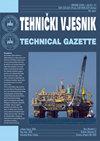基于优化LSTM的合作网络幂域非正交多址深度学习技术
IF 1.4
4区 工程技术
Q3 ENGINEERING, MULTIDISCIPLINARY
引用次数: 0
摘要
非正交多址(NOMA)是第五代(5G)蜂窝网络中提出的多址技术。在NOMA中,不同的用户被分配不同的功率水平,并使用相同的时间/频率资源块(RBs)提供服务。现有NOMA系统面临的主要挑战是有限的信道反馈和难以与先进的自适应编码和调制方案合并。NOMA中的5G系统旨在实现低延迟、高频谱效率和均衡的用户公平性。NOMA允许具有不同功率水平的多个用户在射频时间内共享资源。现有的正交多址(OMA)系统在修改无线信道时存在高延迟、高计算复杂度和高吞吐量的问题。为了克服这些问题,本文提出了利用粒子群优化(PSO)技术对基于深度学习的长短期记忆(LSTM)功率域NOMA进行优化。提出的工作(LSTM-PSO)采用协作网络模型进行部署。LSTM-PSO在协同非正交多址(CNOMA)中具有高性能、下行链路利用率高、资源共享效率高、用户活跃度高、基站容量大、服务质量好、信道状况估计好等优点。LSTM-PSO的准确率为92.05%,LSTM的准确率为86.45%,PSO的准确率为88.13%,ANN和DNN的准确率为83.76%和84.70%。本文章由计算机程序翻译,如有差异,请以英文原文为准。
Deep Learning Technique for Power Domain Non-Orthogonal Multiple Access Using Optimised LSTM in Cooperative Networks
: Non-orthogonal Multiple Access (NOMA) is the technique proposed for multiple accesses in the fifth-generation (5G) cellular network. In NOMA, different users are allocated different power levels and are served using the same time/frequency Resource Blocks (RBs). The main challenges in existing NOMA systems are the limited channel feedback and the difficulty of merging them with advanced adaptive coding and modulation schemes. The 5G system in NOMA aims to access low latency, efficiency in superior spectra, and balanced user fairness. NOMA allows multiple users with different power levels to share resources in radio frequency time. The existing Orthogonal Multiple Access (OMA) system produces high latency, high computational complexity, and throughput complexity in modifying wireless channels. To overcome these issues, this paper proposed optimising deep learning-based power domain NOMA of Long Short-Term Memory (LSTM) with particles Swarm optimisation (PSO) technique. This proposed work (LSTM-PSO) is deployed with a Cooperative network model. The advantage of LSTM-PSO in Cooperative Non-orthogonal Multiple Access (CNOMA) is that it provides high performance, better utilisation of downlink, efficiency in sharing of resources, enhancing the activity of users, capacity of the base station and improving quality of service, estimation of channel condition. LSTM-PSO got a higher accuracy rate of 92.05%, LSTM got 86.45%, PSO got 88.13%, and the accuracy rate of ANN and DNN was 83.76% and 84.70%.
求助全文
通过发布文献求助,成功后即可免费获取论文全文。
去求助
来源期刊

Tehnicki Vjesnik-Technical Gazette
ENGINEERING, MULTIDISCIPLINARY-
CiteScore
1.90
自引率
11.10%
发文量
270
审稿时长
12.6 months
期刊介绍:
The journal TEHNIČKI VJESNIK - TECHNICAL GAZETTE publishes scientific and professional papers in the area of technical sciences (mostly from mechanical, electrical and civil engineering, and also from their boundary areas).
All articles have undergone peer review and upon acceptance are permanently free of all restrictions on access, for everyone to read and download.
For all articles authors will be asked to pay a publication fee prior to the article appearing in the journal. However, this fee only to be paid after the article has been positively reviewed and accepted for publishing. All details can be seen at http://www.tehnicki-vjesnik.com/web/public/page
First year of publication: 1994
Frequency (annually): 6
 求助内容:
求助内容: 应助结果提醒方式:
应助结果提醒方式:


